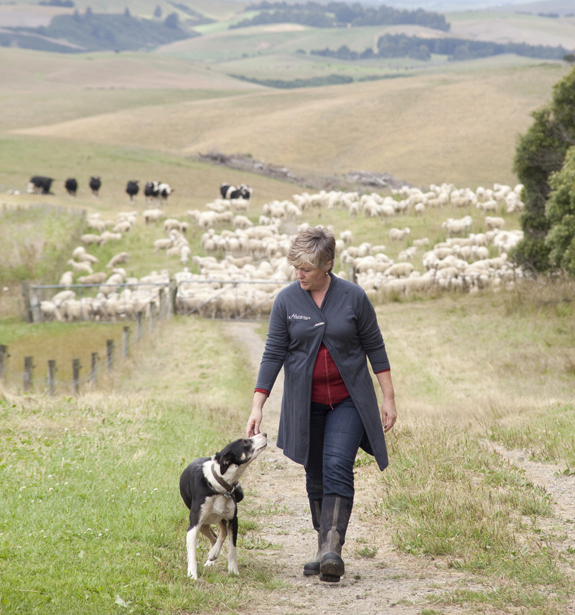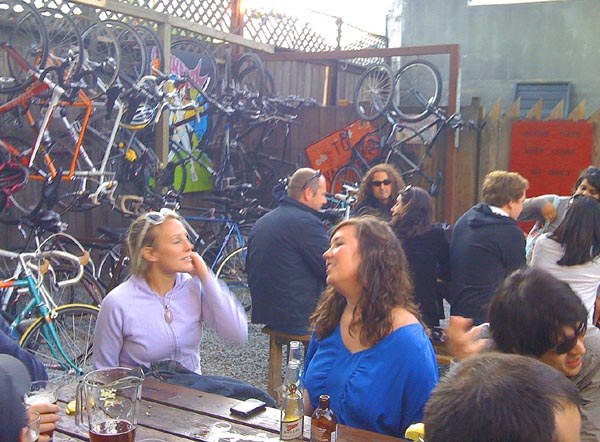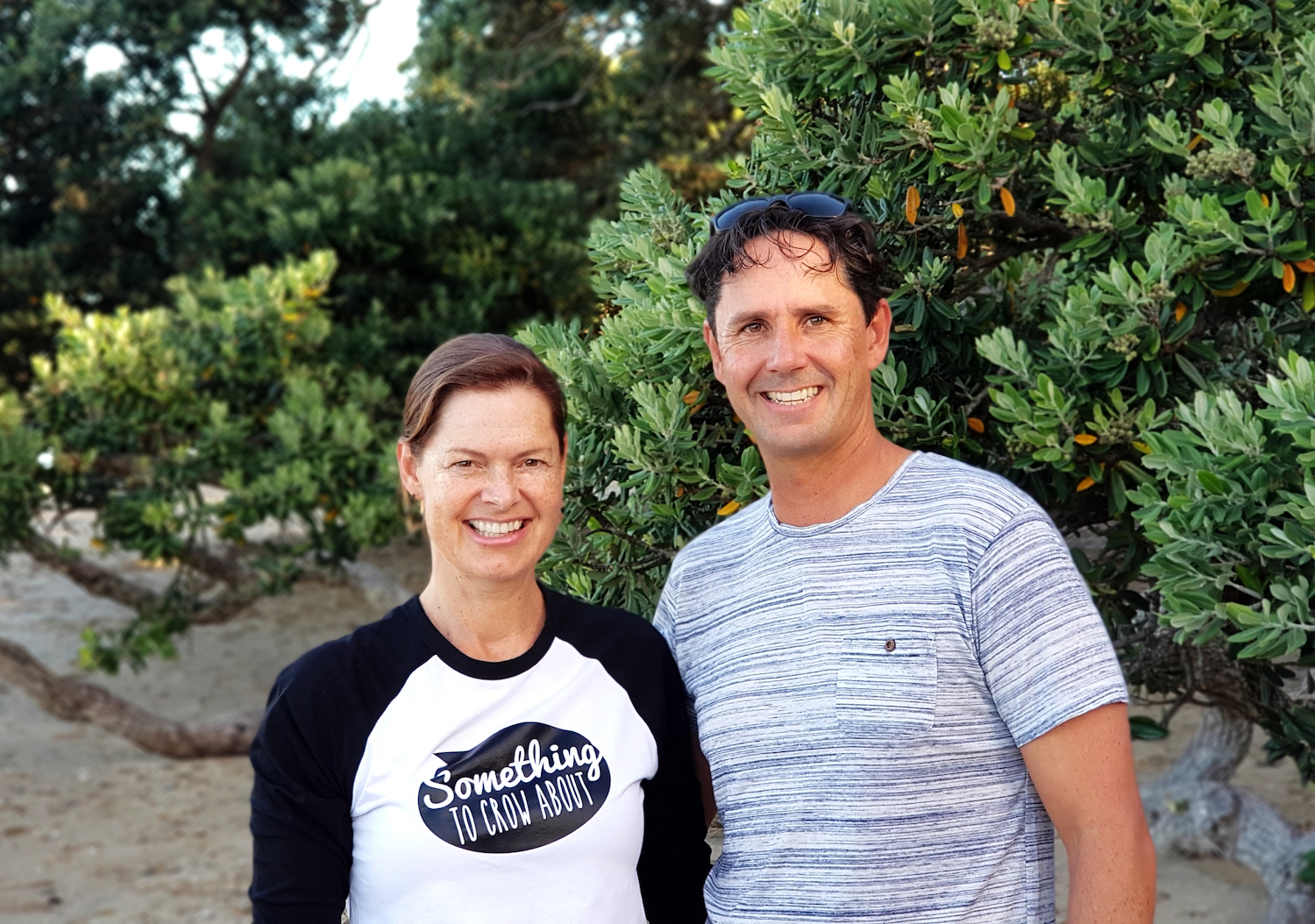We meet the South Otago couple behind a sheep farm that’s successfully gone from conventional to organic
We meet the South Otago couple behind a sheep farm that’s successfully gone from conventional to organic
City gal meets Southern man, sparks fly, and the hills are alive with the sound of shearing. It rings of a juicy Mills & Boon, but when Giselle McLachlan left life as a high-flying Auckland lawyer, swapping suits for gumboots in South Otago, it was for love. Hamilton born-and-bred, she admits never staying “one night on a farm in my life,” but like tailored suits, corporate law wasn’t a comfy fit. When Giselle met Graham Clarke four years ago over tea, she admits “it was a collision of two worlds”. “But a meeting of like-minded people in terms of our values,” she adds. “The fact that he’s a farmer is coincidental.”
Graham is the force behind Marama Organic Farm, a 1,200 acre hectare sheep farm near Gore, and the man who wooed the dyed-in-the-wool urbanite to rural life. Their coming together led to a blended family (four sons between them) and farmland now teeming with diversity. But health on the farm didn’t happen overnight.
In fact, it was Graham’s own ills that led him to farm organically. “My back broke down and that led to a lot of health challenges,” he says. After two operations, he started looking at not just what he ate but what he produced. “The food we were growing wasn’t as good as it could be, never mind there was a bit of environmental stuff going on. It wasn’t where I wanted to be in the long-term.” Like Jeff Williams, the farmer profiled in Good (Issue #23) who swapped conventional dairy for a biological approach, a lecture six years ago by American agronomist and physician Dr. Arden Andersen spurred Graham to action.
Graham’s family bought Marama (Maori for “moon” and “month”) in 1978, and in 1983, the Clarke brothers (Graham’s Wellington-based brother and sister-in-law, Ian and Helen, are business partners in the farm) struck out on their own. Going organic in 2008 took just three years, but the learning is ongoing. “The critical bit is getting to where the soil health is robust enough that your animal health problems diminish,” Graham says.
What’s different, is that superphosphate, a common farm fertiliser, is now a no-go. Made of sulphuric acid and rock phosphate, not only can ‘super’ sicken livestock but its run-off harms native fauna. At Marama, liquid seaweed was sprayed on instead and is now used fortnightly as a tonic in tandem with cider vinegar, in place of the conventional chemical parasite drenching of Marama’s 4,000 Wairere Romney sheep.
Tail docking is also likely in to be dropped. “At tailing time last year, we had absolutely cracker lambs, roly-poly little porkers, so we tailed them, and three weeks later they were full of internal parasites,” says Graham.
Farmers usually dock tails for fear that dirty bums might lead to dreaded fly strike. As stress does with humans, Graham says tailing anxiety leaves lambs open to a litany of ills. To remedy soiled bottoms – and halt the cycle entirely – New Zealand biodynamic guru and farm veteran Peter Bacchus suggested tackling it from the ground up. Chairman of New Zealand’s Bio Dynamic Farming and Gardening Association, Peter says elevated potassium in the soil can cause upset bellies and eventually diarrhoea. This can be remedied with an organic soil spray of magnesium, silica, and calcium. “The best scientist on your land has four legs and a fur coat,” Peter says sagely.
“It was quite an investment, about $6,000, but the net result was that we’ve never, ever had animals anything like as clean as they were this year,” says Graham. “It was a profound change.” He believes tailing stress also left even the best lambs open to pulpy kidney, a swift and deadly disease that took 50 lambs each year at a loss of $7,000. “So, on a cost-benefit ratio, it’s one of the better-paying activities we’ve undertaken.” This coming spring marks the first Marama’s lambs who’re keeping their wiggly tails.

“Our focus is prevention rather than cure,” says Giselle. “We aim to de-stress the animals and feed them as well as possible.” As well as good health, it seems that great tasting lamb is the result. At this year’s Glammies (NZ Beef & Lamb’s Golden Lamb Awards) Marama took a silver gong for outstanding flavour. Most of the farm’s lamb is sold through Silver Fern Farms, but customers around New Zealand can buy direct through Marama’s website. Along with gluten-free lamb sausages, succulent roasts and shanks are being enjoyed in kitchens countrywide.
But is being organic really sustainable?
Peter Bacchus says the question is a non-starter. “You’ll always find people who like shoving figures around, but more important than that are people producing really good food with a range of sugars, minerals, and amino acids. That’s the most important marker for farming, and we don’t measure it enough.”
Graham knows conventional farmers who’ve toiled for decades spending more money maintaining the same level of production with less profit each year. He admits Marama is in a “challenging financial situation, but we’re risking all because we believe the health of humans is in the hands of farmers, and we cannot continue using chemicals in the way now described as ‘traditional’ farming”, he says. “Farming is about nutrition. There’s no other purpose for it, and we need to make that better at every opportunity,” says Graham. “Our preference is to become successful production-wise and profit-wise and become a powerful vehicle to promote change both in the way we farm and the way people eat. That’s what really spins my wheels.”
Giselle keeps a toe half-time in the corporate world, sitting on boards and helping with a variety of projects. Rural life isn’t quite as shocking four years on, but recent tasks like gutting chooks – 45 in one go – take newfound gumption. “Getting my head ‘round the first one was fairly intense,” she says laughing. “Anybody who knows me would say, ‘Oh my gosh! She’s in a rural environment?’ That’s the shocking bit, but the fact that I’m involved in an energetic, stimulating, learning environment? That’s not shocking at all. I’ve always enjoyed developing people and building teams. That’s my passion, I suppose, so with Graham’s passion it makes for a very good combination.
Monica Mead is a regular contributor to Good. She’s a California girl who now calls Blenheim home.







